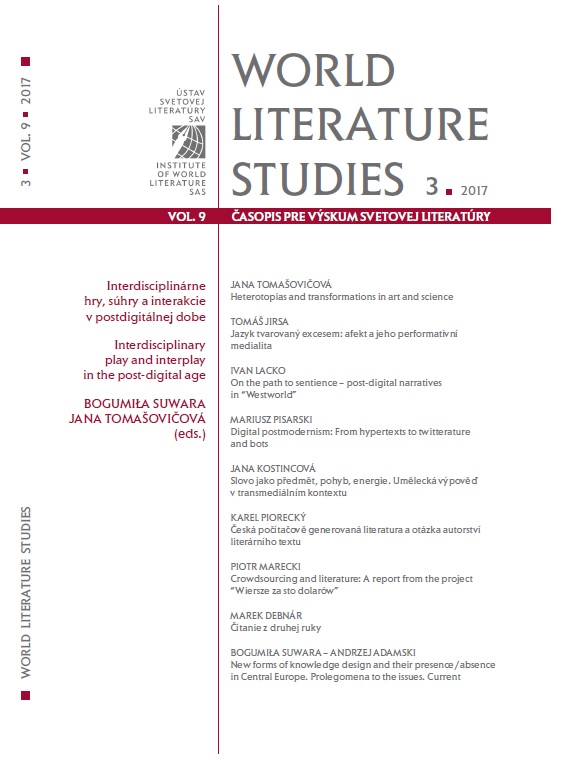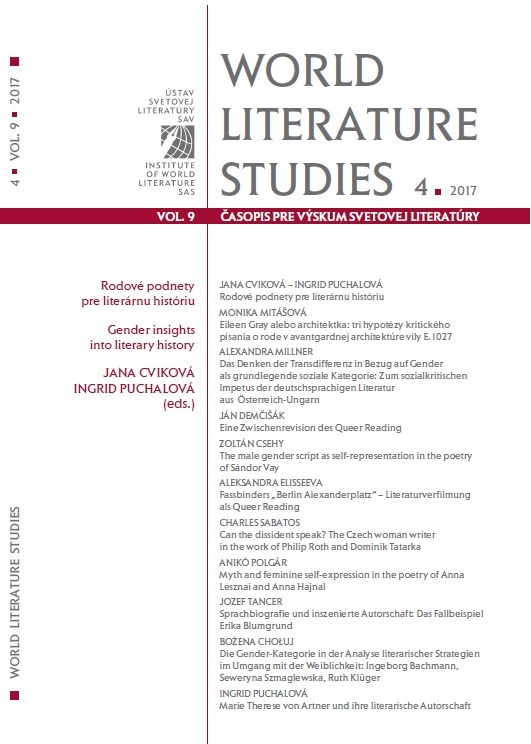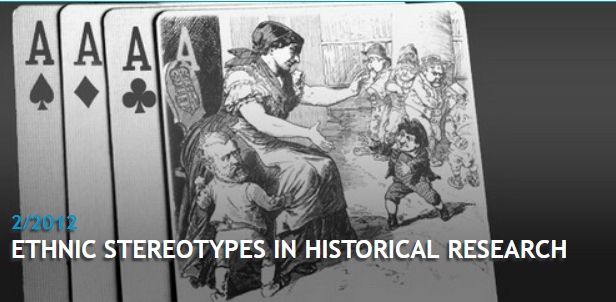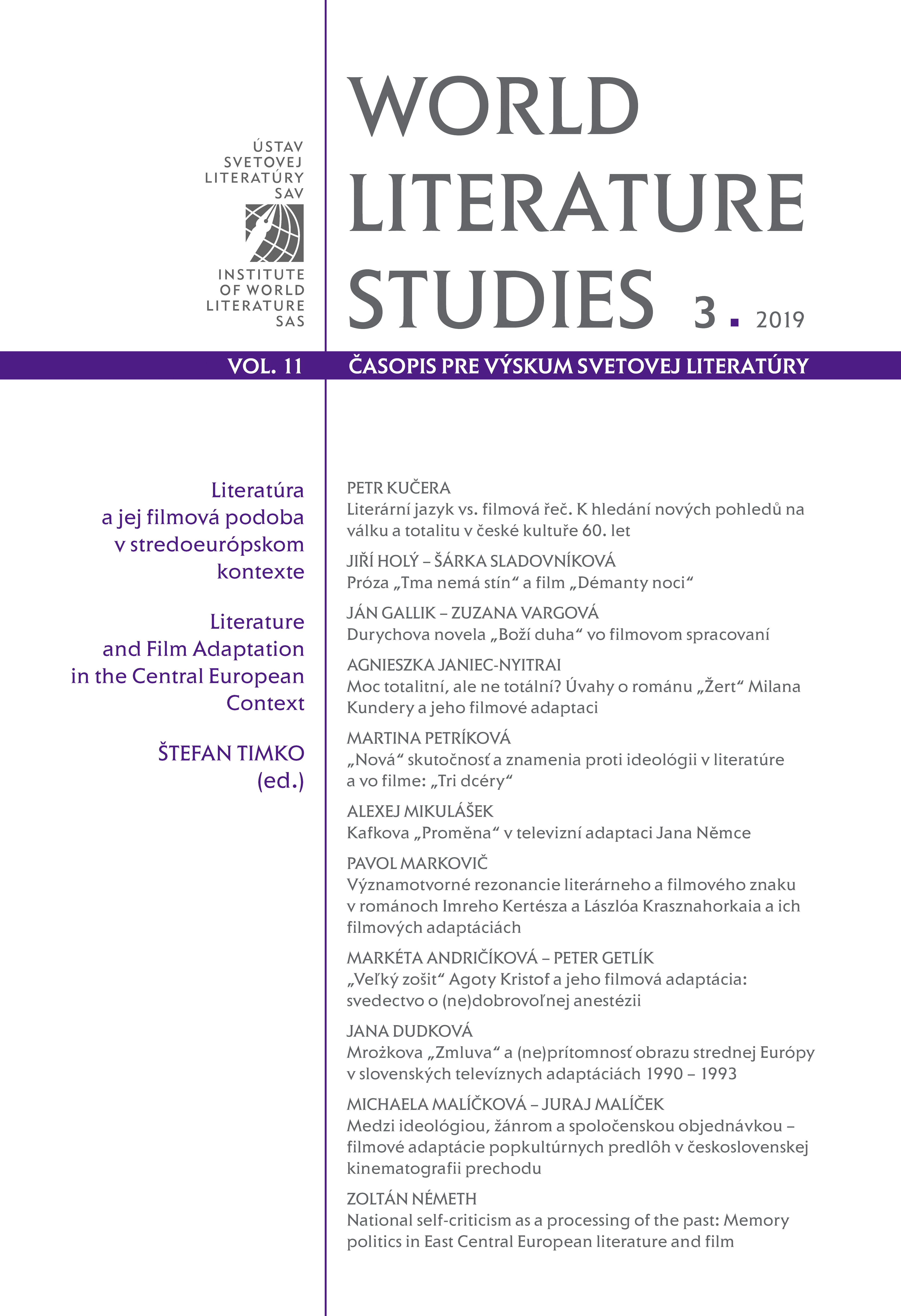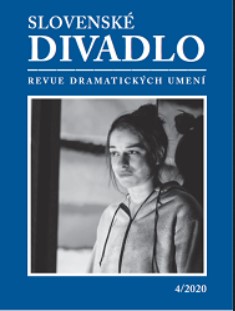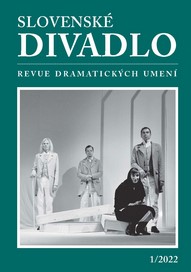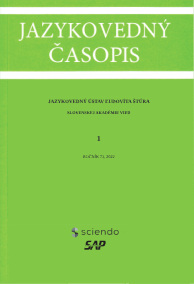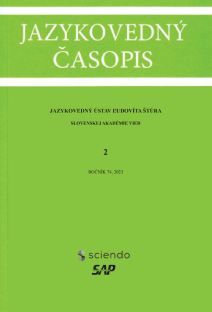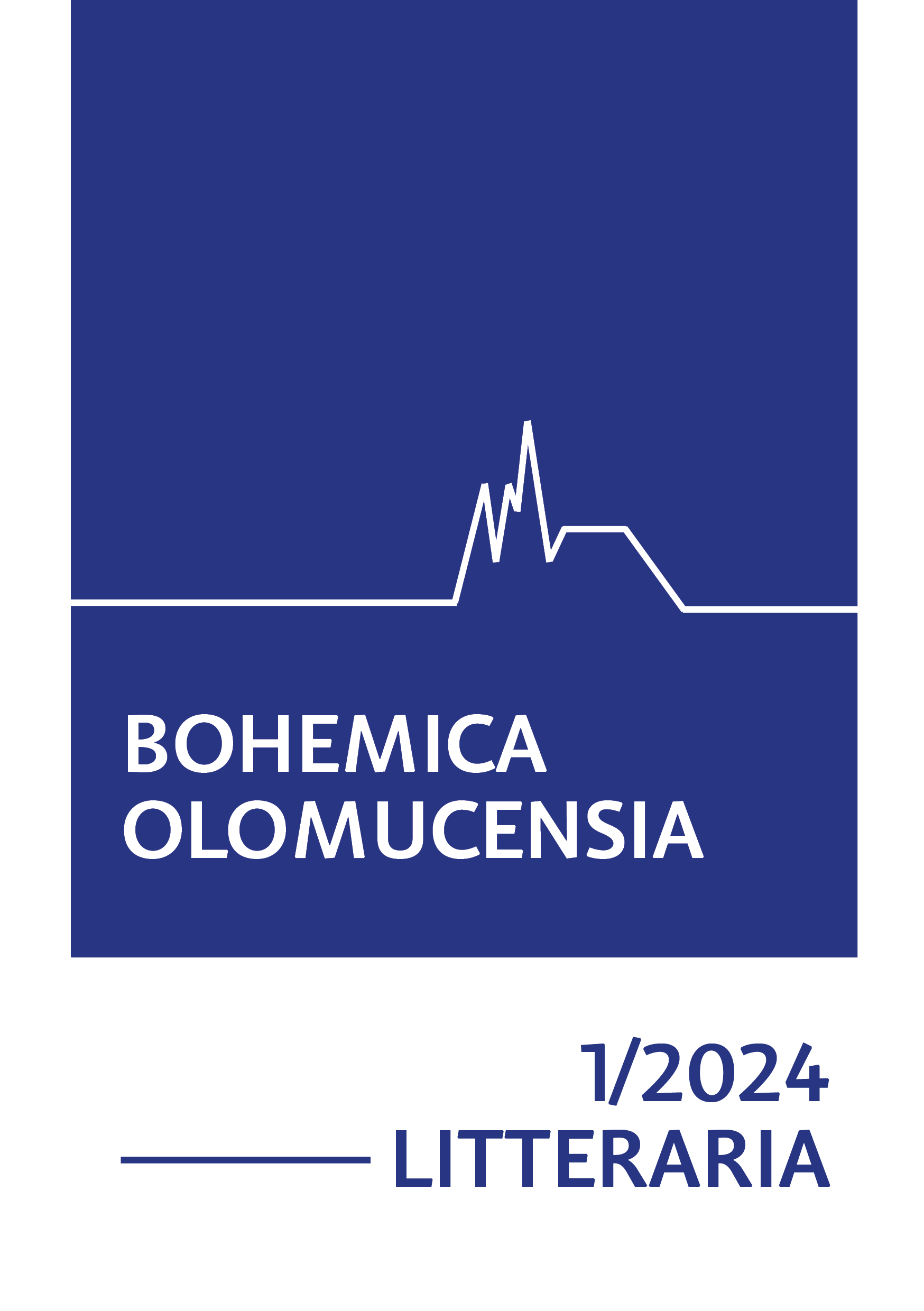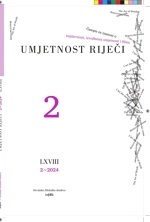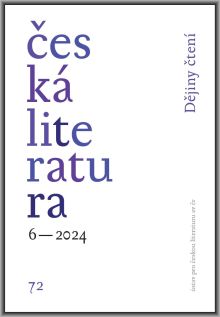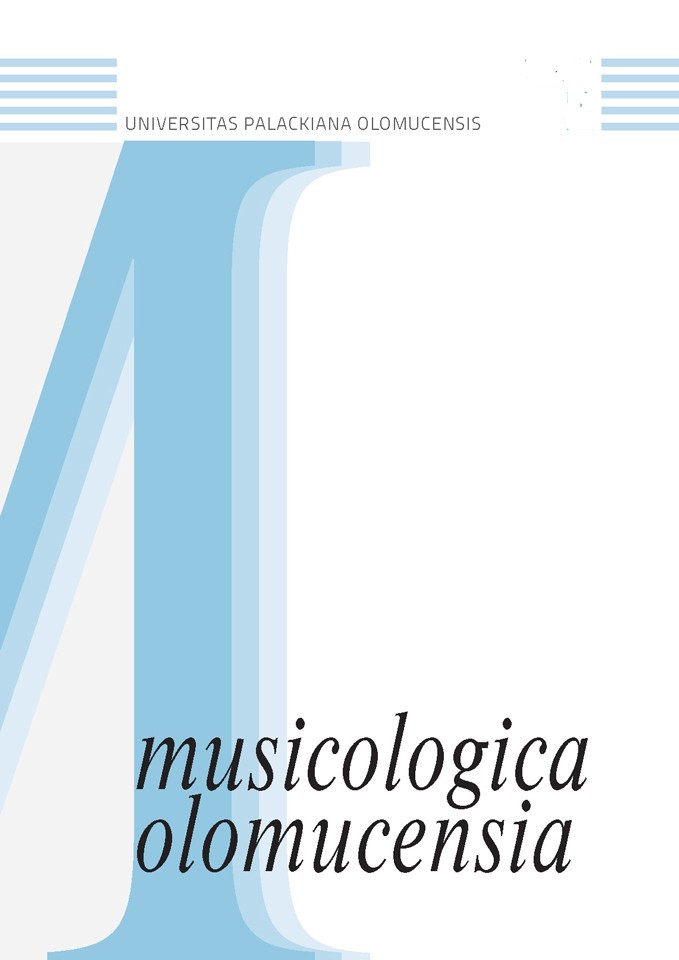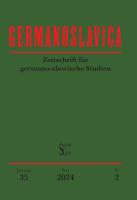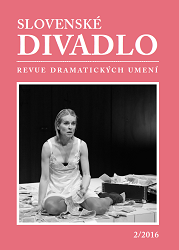
VLADIMIR VYSOCKIJ V SLOVENSKÝCH A ČESKÝCH PUBLIKÁCIÁCH
This study presents a bibliography of poem and song collections by Vladimir Semyonovich Vysotsky (1938-1980), a Russian actor and bard from the second half of the twentieth century, and publications dealing with him published either in the Slovak or Czech language from 1980 until present. It offers a survey of the translations of particular books and examines the source texts with regard to publication tendencies and editorial context in the original literary environment. It also explores publications consisting of thematically relevant translated and original materials about Vladimir Vysotsky. It follows the dramaturgy of publications, taking into consideration the tradition of translation of Vysotsky’s poetry by Milan Dvořák and Jana Moravcová into Czech and Lýdia Vadkerti-Gavorníková, Ľubomír Feldek and Ján Štrasser into Slovak, in books compiled and edited by Milan Tokár. Although the study focuses on seminal book publications, it also touches upon important magazine and journal publications of Vysotsky’s work and texts dealing with his legacy or personality.
More...
